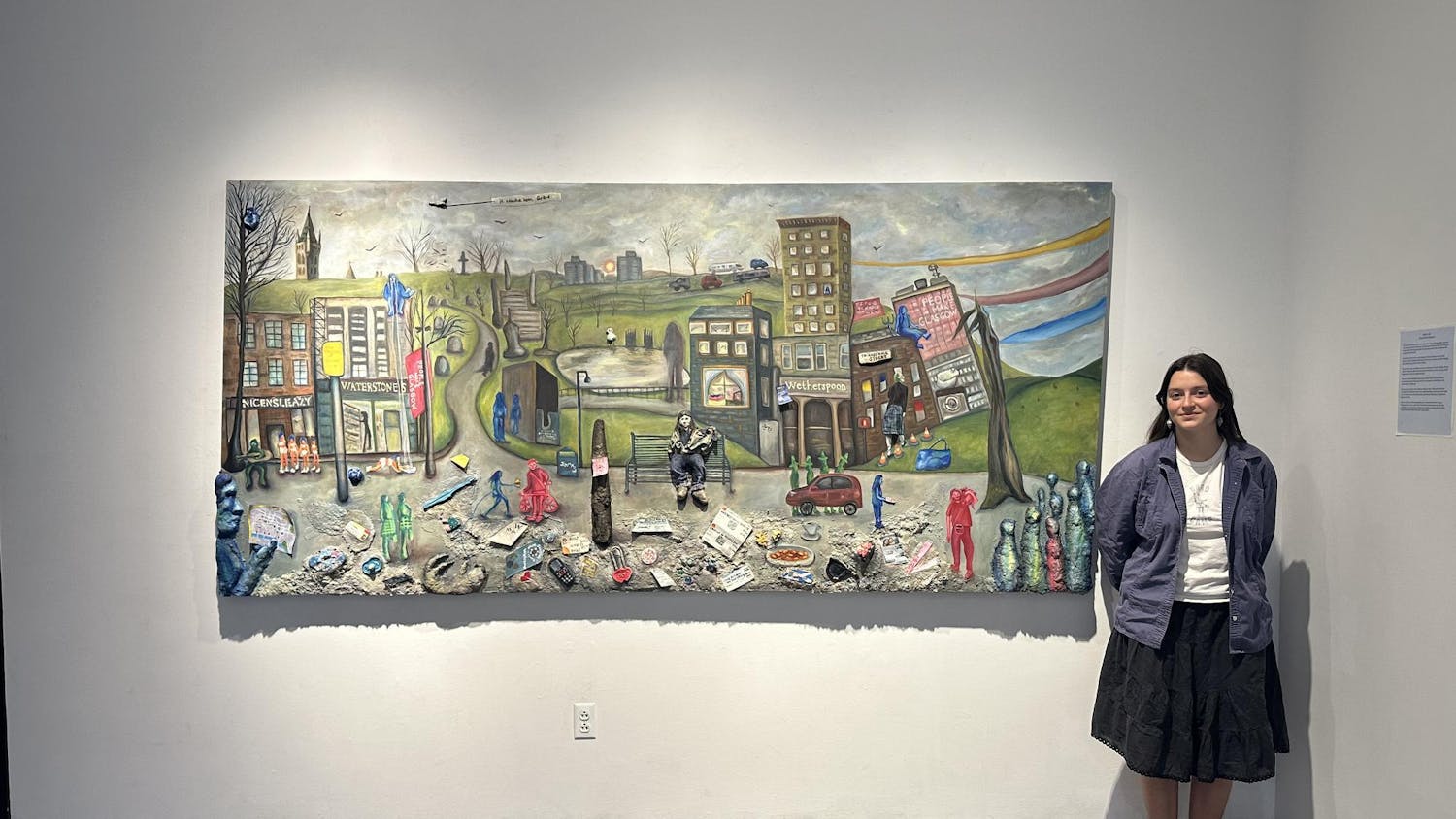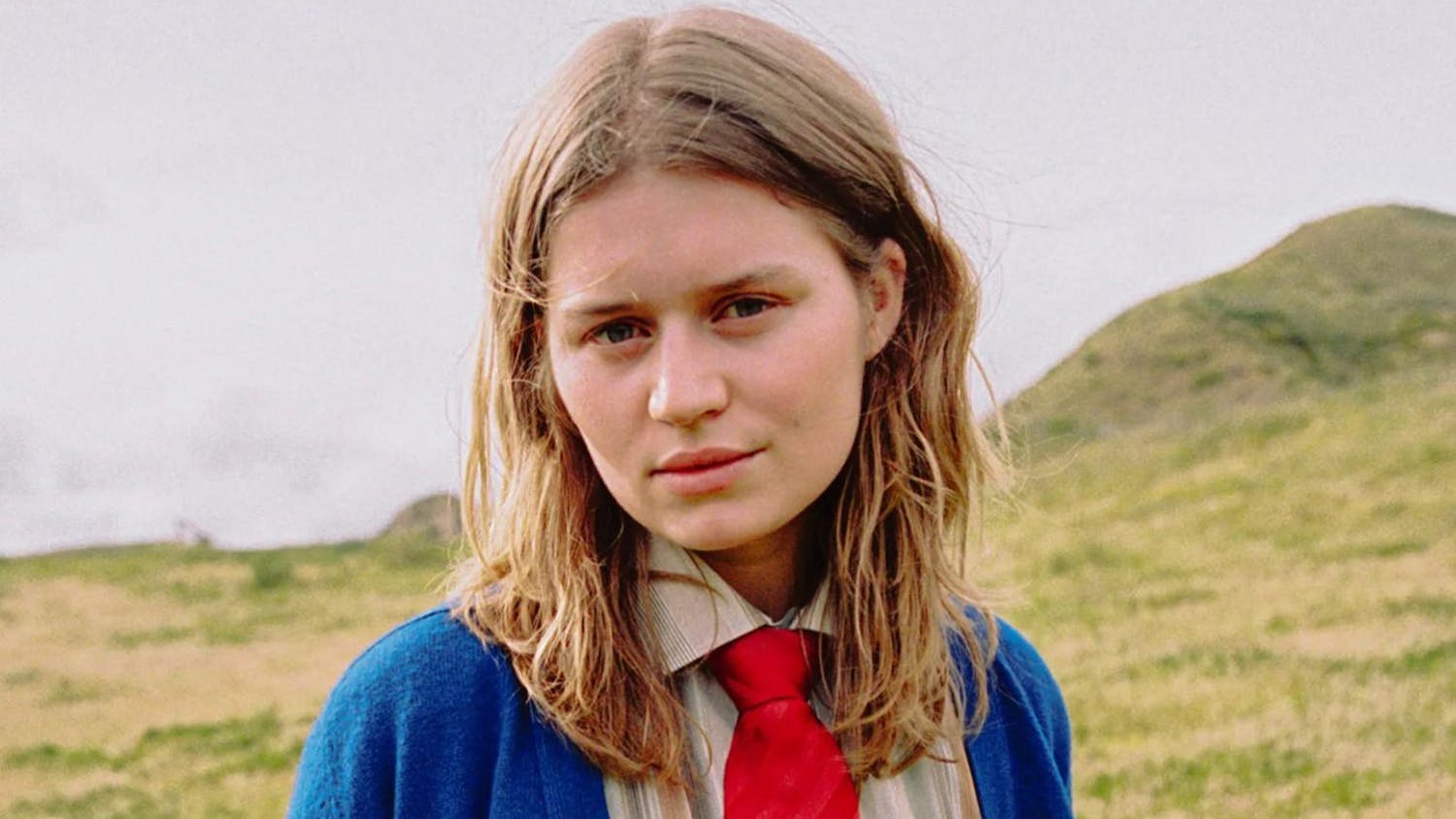Speaking to guests of the Arts in the One World conference Friday afternoon, organizer Erik Ehn, head of playwriting and professor of theater arts and performance studies, laid out the rules of the discussion: "You do whatever you like."
The conference took place from Thursday evening to Saturday afternoon in locations on Brown's campus and around Providence. It was designed as "an anti-conference conference — there's never a fee and there's always food," Ehn said.
This is the sixth year of Arts in the One World, which explores "ways artistic, political and historical purposes intersect (through reconciliation, the recovery of historical memory and advocacy for justice)," according to the event's website.
Last year's conference took place over five days and consisted of more formal panel discussions. This year, though, he said he "wanted to intensify the intimacy." Accordingly, the whole event was shortened and conversations were set in small groups rather than in front of large panels.
The events were centered around meals. "I've long believed that a good meal is a good play and vice versa," Ehn said — art should "sustain you in a delightful way."
A ‘release of tension'
Friday's event was organized around lunch at AS220, a local artists' space and restaurant. Guests gathered in groups around small tables, jostling for space and struggling to hear each other.
The conversation focused on definitions of justice and how it can be applied through the arts.
Margaret Namulyanga GS, an aspiring playwright, described justice as a "release of tension." Her work focuses on the relationship between trauma and the arts in her native Uganda. "I find it so hard as an individual to resolve these issues," she said.
Michelle Hensley, of the Ten Thousand Things theater troupe in Minneapolis, focused on the role of equal access to the arts. Her troupe performs in prisons and homeless shelters as well as for more conventional audiences.
Each guest was asked to provide a definition of justice and explain how it fits into his or her work.
One table arrived at an impasse. Emily Gould, a conflict mediator who attended the event as part of her son's college tour, said she saw justice as "a restoration of right relationship." But Ian McDonald GS said he believes society tends toward injustic. They were able to agree, though, that access — to basic necessities, to the arts, to a voice — is necessary to achieve justice.
After an hour's intimate conversation, the talk opened up to encompass the whole group as guests elaborated on earlier conversations. One woman simply listed phrases that had come up repeatedly: "Justice, waiting, asking the right questions, shutting up, let it emerge."
Interacting with the arts
The conference included a number of other events, beginning with an invitation-only dinner Thursday evening and ending with lunch Saturday at Matthewson Street United Methodist Church.
Saturday's programming included a panel discussion about post-genocide Rwanda and several workshops in applied theater.
At the panel discussion in Wilson 102, moderator Jean-Pierre Karegeye, assistant professor of French and francophone studies at Macalester College, and other guests who had experienced the genocide spoke about the purpose of commemorating violence.
"A crime forgotten is a crime repeated," said Jean de Dieu Mucyo, executive secretary of the Rwandan National Commission Against Genocide.
Their conversation focused on reconciliation among Rwandans and finding a way to move forward.
"I must conclude that Rwanda is unique … that we will always be defined by the events of 1994," said one speaker. But he added that Rwanda is expanding access to free education and raising its per capita income.
Across campus in Alumnae Hall, workshops focused on making the arts accessible to many audiences. Professional actor, dancer and clown Orlando Pabotoy taught a tango. His lesson demonstrated the difficulties of being both a leader and a follower but was above all about listening to the music, he said.
Martha Bowers' workshop activities had participants sitting in circles on the floor, whispering to each other. At other times, they were running around the room and jumping off the stage.
Global Connections
The Arts in the One World conference grew out of a program that Ehn organizes every summer. "A reason for having the conference in the early going was to bring to the (United) States some ideas that we engaged on our summer trip to Africa," he said.
Ehn leads annual trips to Uganda and Rwanda with students and professionals in the arts. The trips focus on "how art and trauma intersect," examining the role of the arts as these countries rebuild.
In March, the Theatre Communications Group awarded Ehn a Global Connections grant to "expand the third annual Centre x Centre Theatre festival (Kigali, Rwanda), which will include workshops and performances from around the world," according to the organization's website.
But Ehn said that, ideally, his role in the projects he has started will continue to diminish. "My hope is that it will be a festival that I'll have to be invited to," he said.
"I'd mostly like to clear space, and then hope that if I come back the next day somebody will have put three rocks together and a foundation will have started," he said.
"The administration on the Rwandan side has really taken local root," he added.
Arts in the One World is "in the middle of itself," Ehn said — the conference was designed to go on for 10 years. While the first five years were "a rallying cry," the final five are "a focusing down," he said.
"Next year could be even shorter, but — I would hope — deeper," he said.




